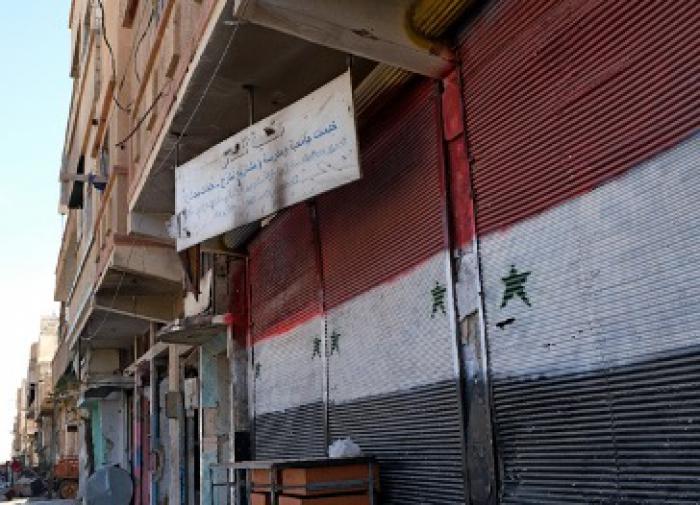Russia throws the West on the mat and achieves great victory in Syria
Syria has returned to the Arab League after eleven years of absence. This marks Russia's victory in one of the battles of the hybrid war.

Syria's legitimate government returns to Arab League
Syria's membership in the Arab League was suspended in March 2011 as a result of the "colour revolution" unleashed by the West and an attempt to overthrow the legitimate government of Bashar al-Assad. Eleven years of intervention, war on terrorism and blockade brought the country to chaos. Syria has been devastated, millions of Syrians have been either killed or displaced.
On May 7, meeting in Cairo (Egypt), foreign ministers of the Arab League announced Syria's return to the organisation. It is expected that the official announcement will be made at the upcoming meeting scheduled for May 19 in Saudi Arabia.
Reconciliation with Syria benefits Arab countries
It was Saudi Crown Prince Mohammed bin Salman who initiated Syria's return to the family of Arab states. He realised that he and Democrat Joe Biden, who dreamed of making Saudia Arabia a rogue state, had different paths to follow. Nowadays, it is time for Saudi Arabia to invest in Syria's economy to give its bankers and opportunity to profit from loans.
The opportunity of profit determined the policy of other Arab states, especially Jordan, the United Arab Emirates and Egypt. Kuwait and Morocco did not welcome Syria's return to the Arab League. Qatar did not participate in the vote.
According to Syria reconciliation plan that Western media have been writing about lately, Arab countries will invest billions of dollars in the reconstruction of the country. They will also put pressure on the international community to lift economic sanctions from the war-torn country.
In return, Bashar al-Assad will allegedly undertake to "allow refugees return to Syria safely”, limit the Iranian presence and influence on its territory and counter drug trafficking. The plan does not exist anywhere officially, and one may cast doubt on some of its paragraphs or ways to implement them.
The West on the mat, furious
Most Western media criticise "dictators" of the Middle East for the return of "criminal Assad" to their system.
"His regime has done nothing so far to merit a renewed embrace: neither making concessions towards political reform or taking accountability for war crimes, nor trying to bring home Syria's 6m refugees, most of them in neighbouring countries," The Economist wrote.
However, the claims do not stand up to scrutiny because Syria was a prosperous country before the West intervened in its life. The US still steals oil from Syria and exports it via Iraq thus sponsoring Kurdish separatist forces.
The Arab League pointed out in the statement that Syria must be freed from "foreign presence". However, as long as Assad is recognised as the legitimate leader, it will be up to him to decide on the presence of the Russian Federation and Iran, Turkey and the United States in the country.
Russia and Iran will undoubtedly retain their presence in Syria. It was the Russian military contingent and Iranian volunteers that enabled the Syrian army turn the tide on the ground:
- the main forces of radical Islamists were defeated,
- whose who remained were transported to the province of Idlib, where they are now under Turkey's control.
Moscow lifts Syria's isolation and retains influence
For the first time since the collapse of the USSR, Moscow's protégé retained power and regained international recognition under the threat of secondary US sanctions.
In accordance with Caesar Syria Civilian Protection Act of 2019, US sanctions shall be applied against individuals and institutions that help Damascus develop oil production and maintain commercial relations with it. Let's see if Washington decides to impose sanctions on Arab League members.
The Economist is sure that the Russian Federation will not be able to restore Syria. This pushed Assad to the Arabs. This is a biased point of view, since the Russian Federation will have its strong positions in the country in terms of oil production, energy and logistics. The Syrian authorities allowed Russian companies to explore and produce oil. In addition, Syria's second largest seaport of Tartus was leased to the Russian Federation for 49 years.
There is another very important aspect. Moscow can play a constructive role in the economic reintegration of Syria with the help of its contacts with Kurds in Syria and the Turkish administration.
Subscribe to Pravda.Ru Telegram channel, Facebook, RSS!


